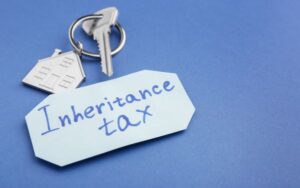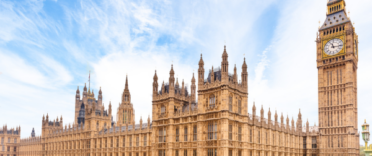 Chancellor of the Exchequer Rachel Reeves announced several changes to inheritance tax during Labour's first Autumn Budget which took place on Wednesday 30th October.
Chancellor of the Exchequer Rachel Reeves announced several changes to inheritance tax during Labour's first Autumn Budget which took place on Wednesday 30th October.
As part of the changes, inheritance tax (IHT) thresholds have been frozen until 2030, while unused pension pots will count towards estates for IHT purposes from April 2027. Business and agricultural relief reforms were announced too, as well as changes to how AIM shares will be taxed.
Below, we outline some of the key changes to inheritance tax announced during the Budget and how they're likely to impact you.
Inheritance tax thresholds frozen until 2030
Inheritance Tax thresholds, including the residence nil-rate band, will remain the same. You will still receive a £325,000 tax-free allowance which means IHT only applies to the value of your estate in excess of this amount. An extra £175,000 residence nil-rate band can be claimed if you own a home and pass it on to a direct descendant. Those who are married or in a civil partnership can still inherit their spouse's allowance which means that the overall potential tax-free allowance remains at £1,000,000.
The freeze on inheritance tax thresholds has been extended by two years until April 2030. The previous government froze inheritance tax thresholds until April 2028, but today's announcement means thresholds won't increase until at least April 2030. For the time being, this long freeze on thresholds will allow many households to plan for the future and will be a relief to those who may have anticipated a reduction in allowances.
Unused pension pots liable for inheritance tax from 2027
Unused pension pots and death benefits will form part of an estate for inheritance tax purposes from April 2027 onwards. Presently, pension pots can be inherited tax-free if a person dies before they turn 75. If the person dies after they turn 75, pension pots are only liable for income tax, payable by the beneficiaries who inherit them.
As such, they are used in financial planning to avoid IHT, particularly since the pension Lifetime Allowance was abolished and ceased to be effective as of April 2024. The changes planned to take effect from April 2027 mean that pensions will count towards the £325,000 inheritance tax threshold and it's estimated this change will affect around 8% of estates.
Chris Rudden, head of UK investment consultants at digital wealth manager, Moneyfarm said: “As far as I am concerned this is dangerous for a government that wants to encourage long-term savings and reduce the burden on the state.
"There were many other options available, but pensions should have been left well alone. In a world where people are worried about the pensions gap for retirement, anything done to dissuade people from investing in their own private pension can create a bigger issue down the line.”
It's estimated that including pension pots and death benefits within an estate for IHT purposes will raise an additional £3.3bn for the Treasury by 2030.
50% relief on business and agricultural properties above £1,000,000
Currently, business and agricultural assets can benefit from up to 100% relief when it comes to inheritance tax.
Business and agricultural properties will continue to benefit from the 100% rates of relief on up to £1,000,000 of agricultural and business property. This will apply in addition to other nil-rate bands and exemptions. The goal is to continue to protect small businesses and farms from the impacts of inheritance tax.
However, for assets beyond £1,000,000, the relief will be set at 50%. This means that the estate's value over and above £1m will be liable for a reduced rate of inheritance tax at 20% - half of the full 40% that would usually be applied. These rules will become effective from April 2026.
The government expects that the majority of estates will be unaffected by these reforms. Estimates suggest that three-quarters of estates claiming agricultural property relief from 2026 to 2027 will be unaffected.
AIM shares affected by reduction in Business Property Relief
Alternative Investment Market (AIM) shares that are not listed were previously exempt from inheritance tax and were seen as an attractive choice for investors who were happy to take on more risk in exchange for a tax break. This is because they qualified for Business Property Relief (BPR) if a person had held them for at least two years.
The Chancellor has announced that the government will reduce BPR to 50% for all shares which are not listed on a recognised stock exchange, including AIM shares. This means that AIMs and other shares that are not listed will attract IHT at 20% from April 2026.
That said, some experts see the 50% relief on offer as a welcome compromise - Amisha Chohan, Head of Small Cap Strategy at Quilter Cheviot, said: "While it is disappointing that AIM shares will no longer be fully exempt from inheritance tax, we are pleased the government has seen sense to retain some sort of incentive to help drive the growth of this country’s smaller companies. With an effective tax rate of 20%, instead of IHT’s headline rate of 40%, AIM businesses, along with their growth potential, continue to give investors a compelling offer."
It's estimated that the AIM measures, coupled with the 50% relief on business and agricultural properties, could raise around £1.8bn for the Treasury by 2030.
An overview of Labour's inheritance tax changes and how they may affect you
According to the Autumn Budget document published on the government's website: "The vast majority of estates currently pay no inheritance tax, and that will continue to be the case after the reforms announced at Budget."
The most radical change announced in terms of inheritance tax changes is perhaps Labour's intention to make pensions a part of a person's estate for inheritance tax purposes. This change is likely to affect 8% of estates once it comes into effect in April 2027. But, beyond this, it will be disappointing news for those people who have been using their pensions to mitigate their inheritance tax bill.
The business and agricultural estate reforms, in addition to the business property relief reform on AIM shares, are estimated to only affect a small number of estates according to the government.
Beyond this, the frozen tax thresholds may be disappointing news for some, but in effect, it means that not much will change for the vast majority of people who will still be able to leave behind at least £325,000 to their beneficiaries before their estates become liable for inheritance tax.





